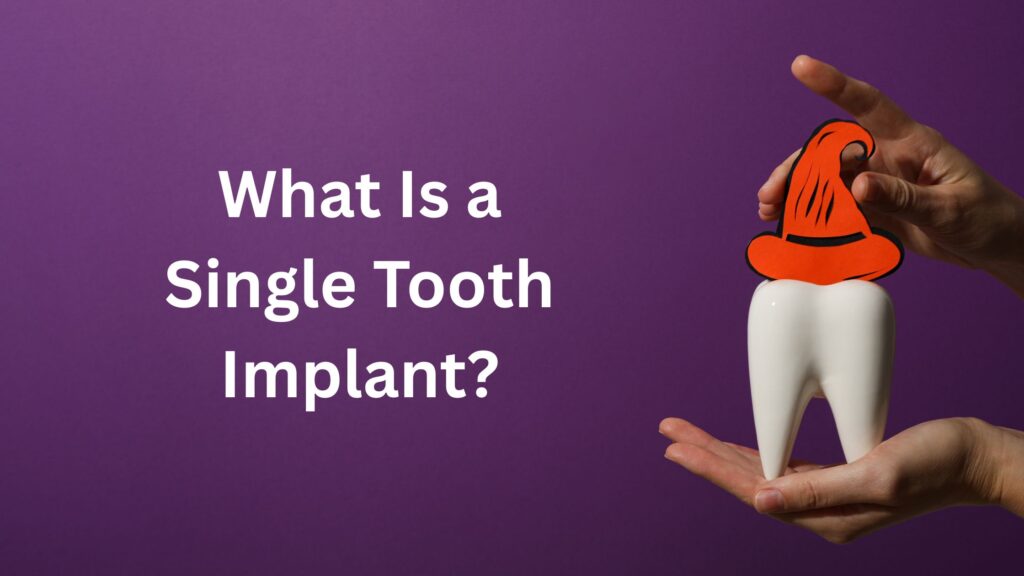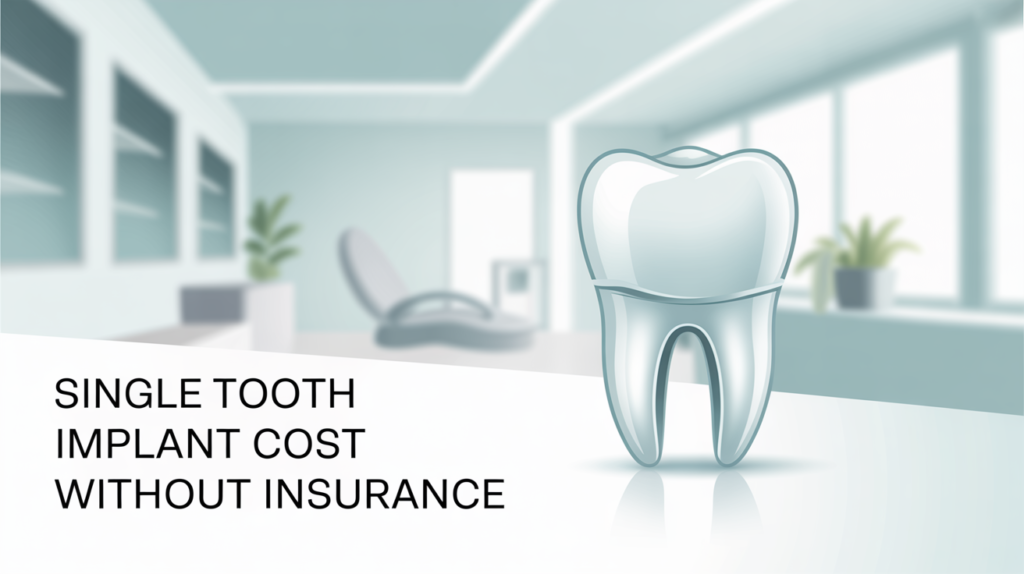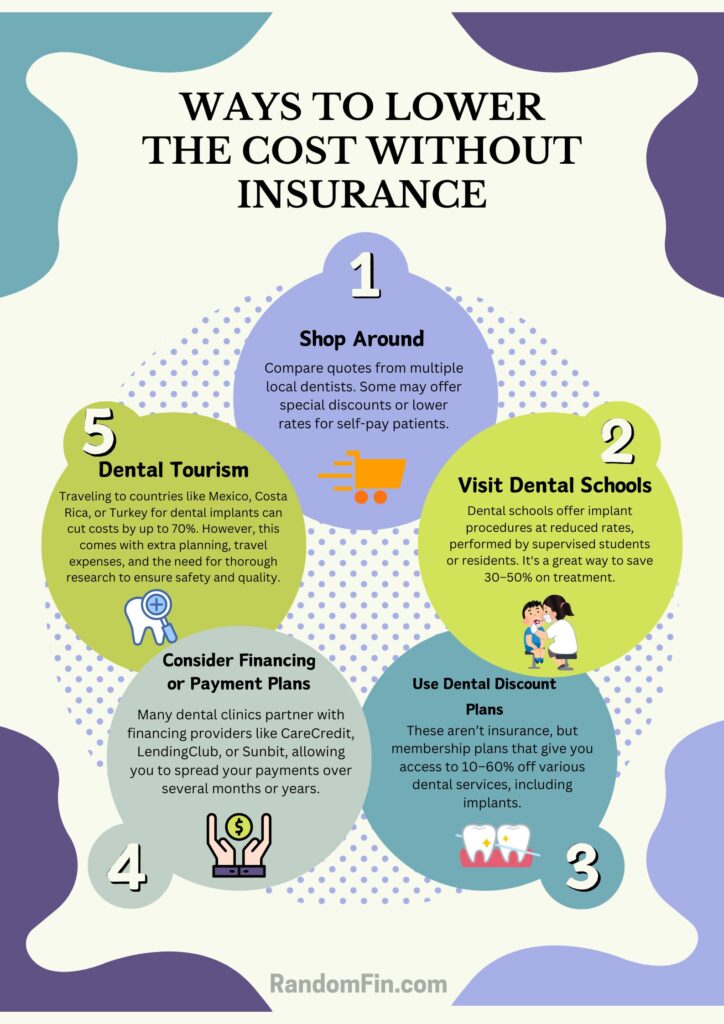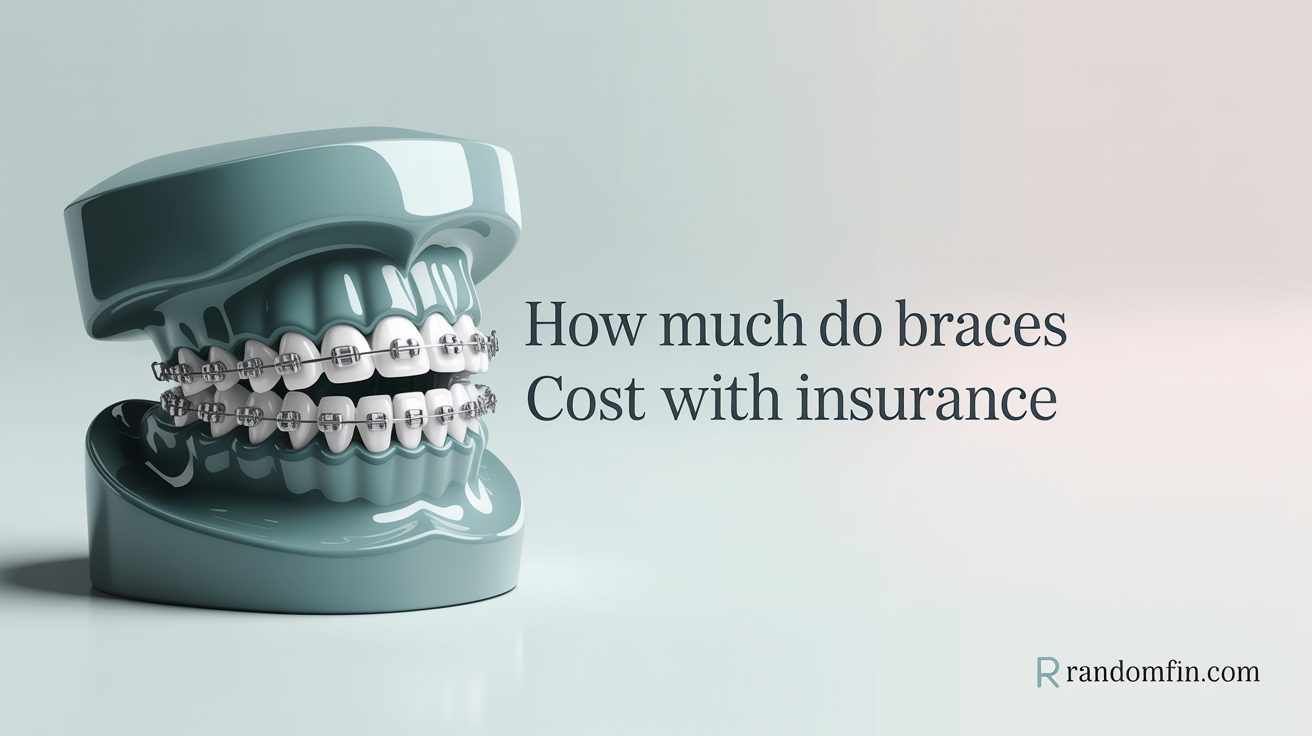Do you want to know about Single Tooth Implant Cost Without Insurance?
A missing tooth can affect your confidence, your bite, and even your overall oral health. A dental implant is one of the best solutions to restore both function and appearance. However, if you don’t have dental insurance, you might be wondering how much a single tooth implant will cost.
In this article, we’ll see the full cost of a single tooth implant without insurance, what factors influence pricing, and whether it’s worth the investment. If you’re also looking to manage essential expenses wisely, check out our article on Cheap No Down Payment Car Insurance, which can help you save on your auto coverage while staying protected.
What Is a Tooth Implant?
A tooth implant, also known as a dental implant, is a permanent and highly effective solution used to replace missing or severely damaged teeth. Unlike dentures or bridges, which rest on the gums or attach to nearby teeth, a dental implant is surgically placed into the jawbone, where it acts like a natural tooth root. Once in place, it provides a strong, stable foundation for an artificial tooth such as a crown, bridge, or denture.
Dental implants are widely considered the most durable and natural-looking tooth replacement option available today. They not only restore your smile but also help maintain your jawbone and overall oral health.
Key Components of a Tooth Implant
A complete tooth implant is made up of three main parts, each playing a crucial role in the function and stability of your new tooth:
1. Implant Post (Artificial Root)
The implant post is a small screw-like structure made of titanium (a strong and biocompatible metal). This post is surgically inserted into your jawbone, right where your natural tooth root used to be. Over the next few months, the implant naturally bonds with the bone in a process called osseointegration. This process creates a solid anchor for the artificial tooth, mimicking the strength and support of a natural root.
2. Abutment (Connector Piece)
Once the implant post has fully fused with the jawbone, typically after 3 to 6 months. a connector piece called an abutment is attached to the top of the implant. The abutment acts like a bridge between the implant post and the visible artificial tooth. It ensures that the crown or denture fits securely and aligns properly with the rest of your teeth.
3. Crown (Artificial Tooth)
The crown is the visible part of the implant and the actual tooth replacement that sits above the gum line. It is usually made of porcelain, ceramic, or zirconia to match the color and shape of your natural teeth. Crowns are custom-designed to blend in with your smile, offering both beauty and functionality. Once the crown is placed onto the abutment, the implant looks, feels, and works just like a real tooth.
What Is a Single Tooth Implant?

A single tooth implant is a dental procedure used to replace one missing tooth, restoring both its appearance and function. Instead of using a removable denture or altering neighboring teeth for a bridge, an implant provides a permanent and natural-looking solution. It closely mimics the structure of a real tooth by replacing the root with a titanium post and attaching a custom-made crown on top.
This approach not only improves your smile but also helps maintain your oral health by preventing bone loss and keeping adjacent teeth in place.
Why Do People Get Tooth Implants?
Tooth implants offer several important health, functional, and cosmetic benefits. People choose dental implants for the following reasons:
1. To Replace a Missing or Damaged Tooth
Whether you lost a tooth due to injury, decay, or gum disease, an implant is a long-lasting way to fill the gap and prevent further dental issues.
2. To Restore Chewing and Speaking Abilities
Missing teeth can make it hard to chew food properly or pronounce certain words clearly. A tooth implant restores your bite and speech, making daily life more comfortable and confident.
3. To Prevent Bone Loss in the Jaw
When a tooth is missing, the bone underneath it can start to shrink over time. Dental implants stimulate the jawbone just like natural tooth roots, preventing bone deterioration and helping to preserve your facial structure.
4. To Improve Appearance and Confidence
Implants look and feel just like real teeth. They help restore a full, natural-looking smile and boost your self-esteem, especially when speaking or laughing.
5. As an Alternative to Dentures or Bridges
Unlike dentures, which can slip or feel bulky, implants are fixed in place. Unlike traditional bridges, implants don’t require shaving down the neighboring teeth. This makes them a more comfortable, convenient, and tooth-friendly option in the long run.
Does Dental Insurance Cover Dental Implants?
It depends on your dental insurance plan, but in many cases, traditional dental insurance does not fully cover dental implants. However, more insurance companies are starting to offer partial coverage for implants due to their growing popularity and long-term benefits.
If you’re also a business owner, understanding insurance is crucial. You can explore our article on 5 Essential Reasons Why Your Business Needs Insurance to learn how coverage can protect your operations.
Here’s how dental insurance may or may not cover implants:
1. Partial Coverage for Certain Parts of the Procedure
Some dental insurance plans might cover parts of the implant process, such as:
- Tooth extraction (if needed before the implant)
- X-rays and diagnostics
- Bone grafting (in some cases)
- The dental crown (the visible artificial tooth)
However, the actual implant post and surgical placement are often either not covered or only partially reimbursed.
2. Annual Maximum Limits
Even if your insurance does cover implants, most dental plans have annual benefit caps, often around $1,000 to $2,000 per year. Since the full cost of a single implant can range from $3,000 to $6,000, insurance might only cover a small portion, leaving you to pay the rest out of pocket.
3. Waiting Periods and Pre-Approval
Some plans have waiting periods (typically 6 to 12 months) before implant coverage kicks in. In addition, insurers often require pre-authorization to confirm that the procedure is medically necessary.
4. Cosmetic vs. Medical Necessity
If the implant is considered cosmetic (to improve appearance only), it’s often not covered. But if it’s needed to restore function (like chewing or speaking), there’s a better chance of at least partial reimbursement.
5. Better Options: Premium or Specialized Plans
Some premium dental plans or standalone implant coverage policies offer better implant benefits. These may cover 50% or more of the implant cost, up to a certain limit.
What You Can Do:
- Consider dental discount plans or financing options if your insurance falls short.
- Check your policy details or call your provider to ask specifically about implant coverage.
- Ask your dentist to submit a pre-treatment estimate to your insurance company.
How Much Does a Single Tooth Implant Cost Without Insurance?

Without insurance, the average cost of a single tooth implant in the United States typically ranges between: $3,000 to $6,000 per tooth
This price includes the cost of the implant post, abutment, and crown, but it can increase if you need additional procedures like bone grafts or extractions.
| Item | Estimated Cost (USD) |
|---|---|
| Dental Implant (post) | $1,000 – $2,000 |
| Abutment and Placement | $500 – $1,000 |
| Dental Crown (porcelain/ceramic) | $1,000 – $2,000 |
| Total (One Tooth) | $3,000 – $6,000 |
Note: These figures are averages. Costs may vary depending on your location, dental provider, and specific case.
What Affects the Cost of a Single Tooth Implant?
Several factors can influence how much you’ll end up paying:
1. Location of the Dental Clinic
Implant costs are often higher in major cities like New York, San Francisco, or Los Angeles due to increased living and operating expenses. In contrast, smaller towns or rural areas may offer more affordable rates.
2. Experience of the Dentist or Oral Surgeon
Highly skilled and board-certified implant specialists may charge more, but they usually offer better accuracy, lower risk of complications, and longer-lasting results.
3. Crown Material
- Porcelain or zirconia crowns: More aesthetic, higher cost.
- Metal crowns: More affordable, but less natural-looking.
4. Additional Procedures
Some patients need extra treatments before the implant can be placed:
- Bone grafting: $300 – $3,000
- Sinus lift: $1,000 – $2,500
- Tooth extraction: $75 – $650 per tooth
These can increase the overall treatment cost significantly.
Is a Dental Implant Worth It Without Insurance?
While implants are expensive upfront, many people see them as a valuable long-term investment in their dental health.
Why They’re Worth It:
- ✅ Durability: Can last 15–25 years or more with good care.
- ✅ Natural Function & Feel: You can chew, speak, and smile with confidence.
- ✅ Bone Preservation: Implants stimulate the jawbone and prevent bone loss, unlike dentures or bridges.
- ✅ No Impact on Neighboring Teeth: Unlike bridges, implants don’t rely on support from adjacent teeth.
Alternative options like dentures or bridges may be cheaper, but they often require replacements every 5–10 years and may not offer the same comfort or stability.
Ways to Lower the Cost Without Insurance

If you’re paying out-of-pocket, there are a few smart strategies to reduce your expenses:
1. Shop Around
Compare quotes from multiple local dentists. Some may offer special discounts or lower rates for self-pay patients.
2. Visit Dental Schools
Dental schools offer implant procedures at reduced rates, performed by supervised students or residents. It’s a great way to save 30–50% on treatment.
3. Use Dental Discount Plans
These aren’t insurance, but membership plans that give you access to 10–60% off various dental services, including implants.
4. Consider Financing or Payment Plans
Many dental clinics partner with financing providers like CareCredit, LendingClub, or Sunbit, allowing you to spread your payments over several months or years.
5. Dental Tourism
Traveling to countries like Mexico, Costa Rica, or Turkey for dental implants can cut costs by up to 70%. However, this comes with extra planning, travel expenses, and the need for thorough research to ensure safety and quality.
Are There Risks or Complications With Dental Implants?
Yes, like any surgical procedure, dental implants do carry some risks. However, it’s important to know that complications are rare, especially when the procedure is done by a skilled dentist or oral surgeon. With proper planning, sterile surgical techniques, and good aftercare, the vast majority of implant procedures are successful and complication-free.
Still, it’s helpful to be aware of the potential risks so you can make an informed decision and take steps to prevent issues. Here are some of the most known risks that may occur with dental implants:
1. Infection at the Implant Site
After the implant is placed, there is a small risk of infection developing at the surgical site. This could happen if bacteria enter the area during or after surgery, especially if proper oral hygiene isn’t followed.
Signs of Infection:
- Redness or swelling around the implant
- Pain that worsens after a few days
- Pus or discharge
- Fever
How to Avoid It:
Follow your dentist’s post-op instructions carefully, take any prescribed antibiotics, maintain good oral hygiene, and avoid smoking, which can delay healing and increase the risk of infection.
2. Nerve Damage
In some cases, especially if the implant is placed too close to a nerve (usually in the lower jaw), it can lead to nerve injury. This may cause temporary or, rarely, permanent symptoms.
Symptoms of Nerve Damage:
- Tingling or numbness in the lips, tongue, chin, or gums
- Burning or shooting pain in the jaw
- Sensitivity when touching the area
How to Avoid It:
A skilled oral surgeon will use 3D imaging or CT scans to accurately map the nerves and determine safe implant placement. Choosing a dentist with experience greatly reduces this risk.
3. Implant Failure or Rejection
In rare cases, the implant may fail to fuse with the jawbone properly. This is known as implant failure and can happen if:
- The bone is too thin or weak to support the implant
- There’s excessive pressure on the implant during healing
- The patient smokes heavily or has certain medical conditions (like uncontrolled diabetes)
Signs of Implant Failure:
- Pain or discomfort long after healing should have occurred
- The implant feels loose
- Swelling or gum recession around the implant
How to Avoid It:
Make sure your dentist evaluates your bone quality before surgery. Avoid smoking, follow dietary restrictions during recovery, and maintain good oral hygiene.
4. Sinus Problems (Upper Jaw Implants)
If an implant in the upper jaw protrudes into the sinus cavity, it can cause sinus infections or discomfort. This is more common if the bone in the upper jaw is thin.
How to Avoid It:
Your oral surgeon may recommend a sinus lift procedure before placing the implant to create enough space and ensure safety.
5. Bone Loss Around the Implant
If plaque builds up and causes gum disease, it can lead to peri-implantitis, a condition where the tissues and bone around the implant become inflamed or deteriorate.
Prevention Tip:
Brush and floss regularly, attend dental checkups, and avoid tobacco products, which increase the risk of implant-related gum problems.
FAQs
How Long Does a Single Tooth Implant Procedure Take?
The entire process can take 3 to 9 months, depending on your healing time and whether you need additional procedures like bone grafting. The surgical implant placement itself usually takes about 1 to 2 hours, but the healing and crown placement take several months.
Can I Make Monthly Payments for a Dental Implant?
Yes, most dental offices offer financing options or payment plans through third-party providers like CareCredit, Sunbit, or LendingClub. This allows you to pay for the procedure in manageable monthly installments.
Is Getting a Dental Implant Painful?
Most patients report minimal pain during the procedure, as it is done under local anesthesia. Some discomfort or swelling may occur afterward, but this is usually manageable with over-the-counter pain relievers. Your dentist may also prescribe medication if needed.
How Long Do Dental Implants Last?
With good oral hygiene and regular dental checkups, a dental implant can last 15 to 25 years or longer. The crown may need to be replaced after 10–15 years due to normal wear, but the implant post can last a lifetime.
Can I Eat Normally with a Dental Implant?
Yes, once fully healed and the crown is placed, a dental implant functions just like a natural tooth. You can eat, chew, and speak normally, often with better comfort and stability compared to dentures.
Conclusion
A single tooth implant without insurance may cost between $3,000 and $6,000, but for many, it’s a life-changing investment. It offers long-term durability, a natural appearance, and better oral health outcomes compared to temporary solutions. While the price can be intimidating, options like dental schools, discount plans, and financing can make implants more accessible even without insurance. If you’re considering a tooth implant, speak with your dentist about your options, get a personalized treatment plan, and explore all your financing or cost-saving choices before making a decision.











